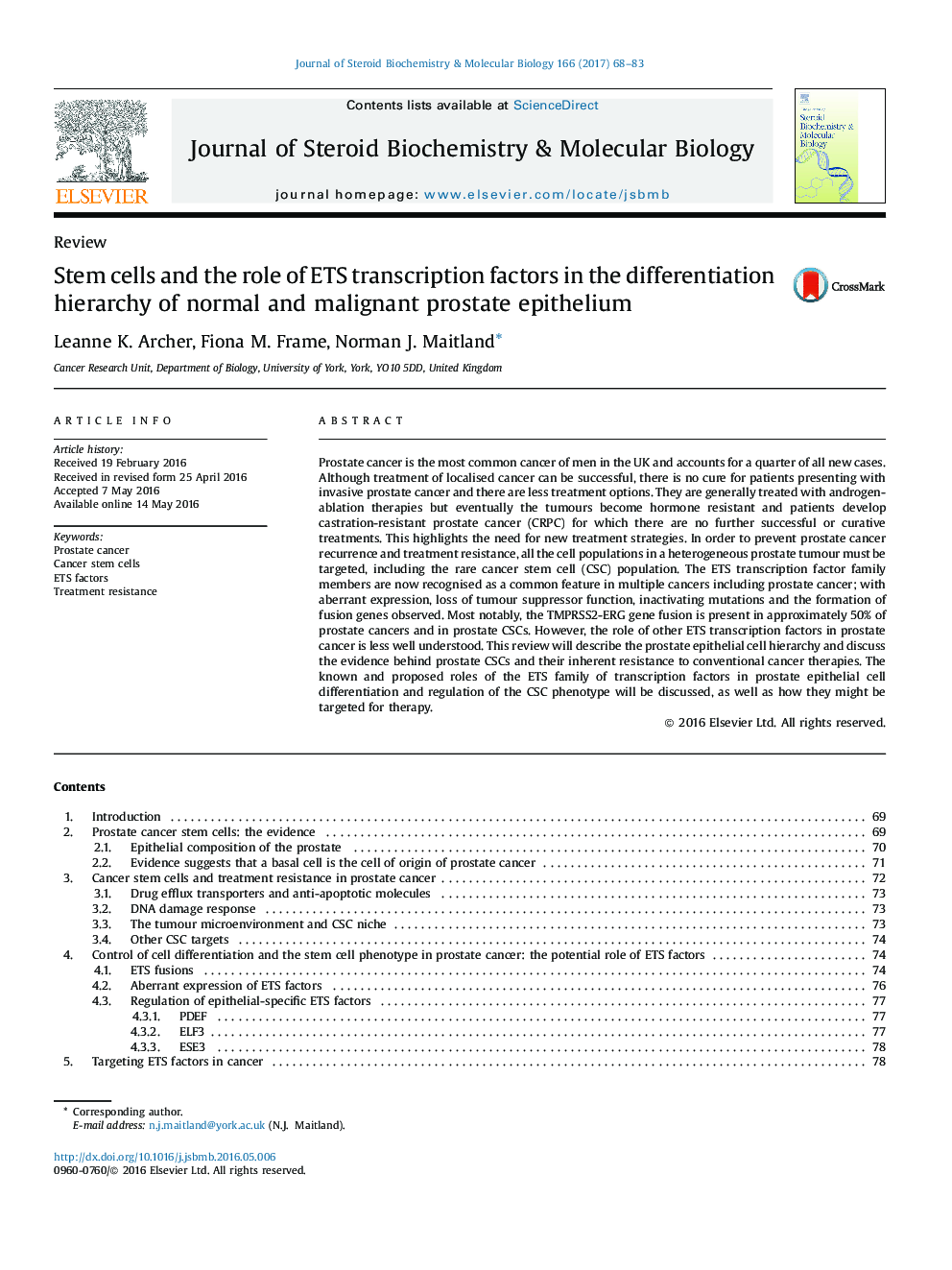| Article ID | Journal | Published Year | Pages | File Type |
|---|---|---|---|---|
| 5513181 | The Journal of Steroid Biochemistry and Molecular Biology | 2017 | 16 Pages |
â¢Cancer stem cells (CSCs) are the cellular origin of prostate cancer.â¢CSCs harbour a number of therapy resistance mechanisms.â¢ETS factors are involved in prostate cancer and epithelial cell differentiation.â¢ETS factor targeting in cancer may impact long term therapeutic efficacy.
Prostate cancer is the most common cancer of men in the UK and accounts for a quarter of all new cases. Although treatment of localised cancer can be successful, there is no cure for patients presenting with invasive prostate cancer and there are less treatment options. They are generally treated with androgen-ablation therapies but eventually the tumours become hormone resistant and patients develop castration-resistant prostate cancer (CRPC) for which there are no further successful or curative treatments. This highlights the need for new treatment strategies. In order to prevent prostate cancer recurrence and treatment resistance, all the cell populations in a heterogeneous prostate tumour must be targeted, including the rare cancer stem cell (CSC) population. The ETS transcription factor family members are now recognised as a common feature in multiple cancers including prostate cancer; with aberrant expression, loss of tumour suppressor function, inactivating mutations and the formation of fusion genes observed. Most notably, the TMPRSS2-ERG gene fusion is present in approximately 50% of prostate cancers and in prostate CSCs. However, the role of other ETS transcription factors in prostate cancer is less well understood. This review will describe the prostate epithelial cell hierarchy and discuss the evidence behind prostate CSCs and their inherent resistance to conventional cancer therapies. The known and proposed roles of the ETS family of transcription factors in prostate epithelial cell differentiation and regulation of the CSC phenotype will be discussed, as well as how they might be targeted for therapy.
